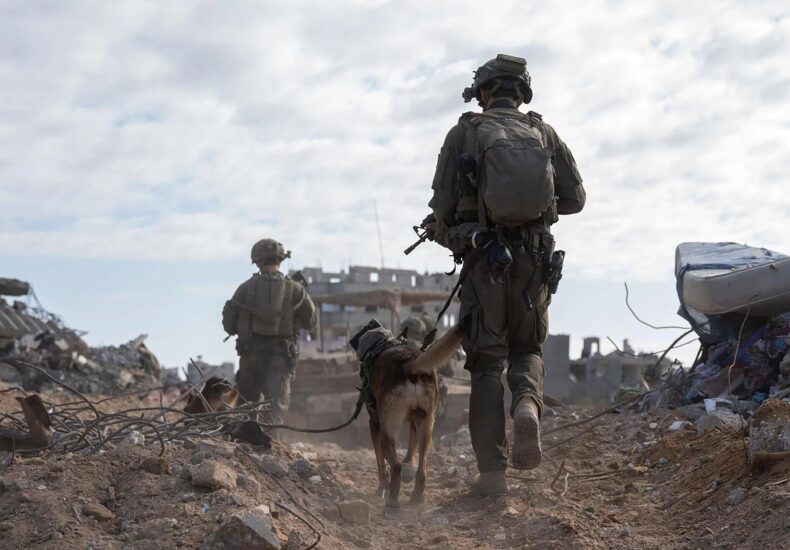
Israel Hides Soldier Identities Amid Brazil War Crimes Inquiry
Israel Conceals Identity of Soldiers Amid Alleged War Crimes Investigation in Brazil
Israel has sparked international controversy after it decided to conceal the identities of several soldiers under investigation for alleged war crimes committed in Brazil. The case, which has drawn the attention of global human rights organizations, centers on accusations that Israeli soldiers were involved in actions that violated international humanitarian law during their time in Brazil.
The decision to withhold the identities of those accused has raised questions about accountability and transparency, both within Israel and in the broader international community. It also highlights the growing tension between national security concerns and the global demand for military accountability.
The Allegations: What Happened in Brazil?
The investigation into the Israeli soldiers stems from allegations related to an operation conducted by the Israeli military, which reportedly involved the use of excessive force during their mission in Brazil. Though the details remain unclear, several witnesses and local authorities have claimed that Israeli soldiers carried out unlawful actions, including targeting civilians and using disproportionate force in a conflict zone.
Brazilian officials have called for a full investigation, urging Israel to cooperate in identifying the responsible personnel and holding them accountable for their actions. However, the Israeli government has refused to publicly disclose the names of the soldiers involved, citing security reasons and the protection of its military personnel.
The allegations come at a time of heightened scrutiny of Israel’s military activities abroad, particularly in regions where it is involved in peacekeeping or counterterrorism efforts. Some human rights organizations have called the actions of the soldiers in Brazil a violation of international law, citing concerns about war crimes and the protection of civilians in conflict zones.
Israel’s Response: Security and National Interests
In response to the investigation, Israeli authorities have defended their decision to withhold the identities of the soldiers involved. Government spokespersons have stated that releasing the names of the soldiers could compromise national security, potentially endangering military personnel both in Israel and abroad.
Israel has emphasized that it takes all allegations of misconduct seriously and that the investigation into the actions of its soldiers is ongoing. However, the government maintains that the protection of its forces is paramount, especially in light of the sensitive nature of military operations and the risks faced by Israeli soldiers in foreign territories.
Israel has also pointed out that military personnel are subject to rigorous oversight and accountability procedures within the country, but some critics argue that this system does not adequately address international concerns regarding human rights violations.
International Reactions: Calls for Transparency and Accountability
The decision to shield the identities of the soldiers has been met with strong reactions from international human rights groups and foreign governments. Advocacy organizations such as Human Rights Watch and Amnesty International have expressed concern, urging Israel to prioritize transparency and accountability in dealing with the allegations.
“This is not just a matter of internal Israeli policy,” said a spokesperson from Human Rights Watch. “When allegations of war crimes arise, the international community has a right to know who is responsible, and those responsible must be held accountable. Without transparency, there can be no trust in the investigation process.”
In Brazil, political leaders have echoed these sentiments, calling for full cooperation from Israel. Some Brazilian lawmakers have even suggested that Israel’s refusal to cooperate could strain diplomatic relations between the two countries, especially as Brazil continues to champion human rights on the global stage.
The Debate Over Accountability in International Military Operations
The controversy surrounding Israel’s decision to conceal the identities of its soldiers highlights a broader debate about accountability in international military operations. Countries involved in peacekeeping or military interventions must balance national security concerns with their obligations under international law.
This case is not the first time Israel’s military activities have come under scrutiny. The Israeli Defense Forces (IDF) have faced accusations of human rights abuses and violations of international law in various conflicts, particularly in the Gaza Strip and the West Bank. However, Israel has often defended its actions, citing the need to protect its citizens from terrorist threats.
The question of how to balance military secrecy with human rights accountability is one that has plagued numerous nations involved in foreign operations. Experts argue that while national security must be protected, transparency and adherence to international human rights standards should be equally prioritized to maintain the legitimacy of military interventions.
The Global Implications: Human Rights and Military Ethics
As the investigation into the alleged war crimes in Brazil unfolds, it has the potential to set a precedent for how countries handle allegations of military misconduct abroad. The issue of military ethics and human rights has become more pressing in the globalized world, where conflicts often involve multinational forces and complex legal frameworks.
The case also serves as a reminder of the broader challenges faced by international organizations like the United Nations and the International Criminal Court (ICC) in holding military personnel accountable for war crimes. Despite efforts to strengthen international law, enforcement remains inconsistent, and some countries continue to shield their military personnel from scrutiny.